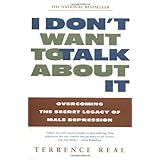
Average Reviews:

(More customer reviews)I read Steve Santagati's Manual driven by the same curiosity that compels men to page through copies of Cosmo at a girlfriend's house. We don't subscribe to those magazines, so somehow they immediately create intrigue. So in part it was voyeurism, and in part I wanted to explore what lessons were being taught to women by one of our own. I read through a few of the reviews here where Santagi was demonized as a pig, and I guess I'm here to say that whether or not that happens to be true, what the ladies should be curious about is whether or not his comments are accurate or reflective of most men. While I will admit that his delivery is a bit crude, guys can be too sometimes, so overdoing it is probably a better tact than sugarcoating things. I'll gladly confirm that for better or for worse, much of what he says is pretty accurate for most guys (we're sorry we're superficial, but we're just made that way ... and in my experience, even brilliant women like to be loved for their looks too). All Steve is saying is that it won't make you any less of a success to take advantage of this fact and accentuate it -- which isn't very different from a guy realizing that there's nothing wrong with his masculinity.
After serving as a shoulder to cry on more than once for my mystified and confused female friends, I've wanted at times to write a book much like this, though mine would probably have been more scientific, and perhaps even less PC. If you are curious about the scientific underpinning of the fundamental truths Steve seems to have learned in the real world, read Nancy Etcoff's "Survival of the Prettiest" or Geoffrey Miller's "The Mating Mind." Men and women are profoundly DIFFERENT on a neurological level. There's no moral judgment about it, and the more that we can learn to accept and embrace these differences, the happier we'll become. Any trait taken to extremes becomes unappealing, and most everything that irritates women about men (and vice-versa) is something that in moderation is often very attractive.
There's a big trend now, typified by VH1's "The Pick Up Artist" and Neil Strauss's "The Game" for men to explore the psychology of the female mind and leverage that into success in the dating world. When taken too far, this can be manipulative and disgusting, but in moderation, it does actually help some guys get over their issues or hurdles into being more comfortable in their skins. For me the moment when I realized just how different male and female minds were, I was in High School. I remember when I was first told by a brilliant beautiful girl I crushed on that she wanted confidence more than anything else in a man, and I remember thinking, "Huh? Not kindness, attractiveness, intelligence, or talent?" "You want confidence even if he boldly charges in wrongheaded directions?" "Yep. I don't know quite why it is, but it's still hot," was the reply, although she couldn't explain what made her feel that way any better than I can with my fascination with ponytails.
So our predilections are no more difficult for you to understand than yours are to us. Here's an illustrative story of the parallels between male and female thinking from the other side: Recently I was at a trendy downtown Manhattan restaurant, when Mystery, the host of "The Pickup Artist" walked in, all gangly six-foot six inches of his goth-looking overdone self, and I pointed him out to my tablemates. After an explanation of who he was to the girls at our table, and grudging admissions that we'd seen his show or read Mr. Strauss's book from all the guys, one of the girls (a highly educated, intelligent and stunning catch herself) proclaimed that she was certain that "confidence couldn't be taught." Well, she sure was wrong. The guy who brought her there on a date (also a handsome and successful match himself) had recently transformed himself from insecure to comfortable around women in part through Strauss's teachings. And the whole world of women never would have learned or experienced what a great guy he was unless someone had taught him a thing or two about female evolutionary psychology. Santagati's just trying to do the same thing for women that Strauss did for men. All sorts of girls with amazing personalities reject the notion of playing up their beauty on moral grounds. Sadly, the results of this are that lots of guys never meet truly amazing women who hide behind baggy clothes or overdone fashion.
Santiago tries to teach a few very accurate lessons: (1) Guys can't be analyzed through the lens of the female psyche. Our minds are too different for it to be intuitive. Instead you should educate yourself on what men say men want, because we may be many things, but we do usually say what we want. (2) Yes we are superficial, but we LOVE women and we want to see you as your best selves so we can smother you with affection. (3) Taking advantage of your looks isn't unethical or anti-feminist, a guy becomes attracted to you for physical assets, but STAYS for your personality (it's not wrong, it's just the way nature made us). (4) If you refuse to take advantage of the triggers for male attraction, chances are you won't find the guy you deserve (and he won't find you), so you will settle for a relatively boring guy instead. The differences between the sexes are a large source of excitement, and denying this will probably lead to antiseptic, dull relationships. (5) Don't listen to your female friends about how to get a guy or what to wear -- literally everything you do to impress your female friends will doom you with men. I've always been curious about why women spend so much effort on themselves, but that it's always put in the wrong places. I can't even count the number of times when I've seen a woman in a grossly unflattering outfit, only to hear her friends tell her how adorable it is. I don't know if this is intentional sabotage or not, but it isn't pretty. There are women out there who've spent loads of money on botox or handbags, but there isn't a single guy out there who will remember a girl for her trendy clothing. Meanwhile there are plenty of girls who are out of shape but carrying lustworthy accessories, whose time and money would have been better spent in a gym or ditching the car for a day to walk or bike, and there are others who obsess about trivial aspects of their appearance like wrinkles or noses while covering up terrific assets. Men rarely care about the details women fixate on. We see women holistically instead. For every woman down on her skin, there's a man who thinks she has amazing hair and never even notices her skin. The converse is doubtless true as well.
None of these insecurities are surprising. I know that the pressures that are put on women are Herculean and absurd. Success and family all before 30 or 35 ... while keeping in great shape? Virgin and whore at the same time? Sexy, but successful and appreciated for your mind not your body? They're unachievable paradoxes and it simply isn't fair! "Us Weekly" runs profiles on women who are too skinny and too fat in the same issue. It's all a little much.
But if you pause for a moment and consider where this criticism comes from, believe it or not, it's usually not guys. In my experience, and that of any girl who's gone through the social hell that is Junior High, it's usually the female peer group that's toughest on women! I rarely hear guys call women derogatory words unless they're overreacting from a recent heartbreak or breakup, but I hear girls say those words all the time about their FRIENDS! Guys are usually pretty accepting of body image. All you really need to do to look great is to stay healthy and in-shape and not let the media or advertising deceive you into believing that trivial problems are major. I find the little signs of aging and maturity profoundly attractive ... it's just that our American corn-starch diet-soda sedentary lifestyle is not. Men love the whole woman, not her eyeliner. So if women could only accept their complete beauty without worrying about what Maybelline tells them, I think we'd have a lot of happier people out there. Frankly, I've always found the Dove commercials with the plus-sized models fascinating: The commercials told you to accept your body for being overweight ... but then they replaced that insecurity with another, telling you that you had to buy their cream or moisturizer or suffer the horrors of cellulite (yet another thing guys could probably care less about). The cosmetics industry is made up of total hypocrites. The purveyors of unachievable body image are often those interested in making you feel bad about yourself so they can sell their products.
In summary, I'm a nice guy at heart, but I have a bit of a "bad guy" side. While I would love to be appreciated for my merits alone, I've realized that the "bad guy" side generates a lot more interest from women that just being a good guy. It's not necessarily the way that I'd like things to be, but it is the way the world works. Even if it's not what I wanted to hear, understanding that dichotomy does make for a more satisfying life than ignorance would have. So while some of what Steve says may not sit well, guys do respond to appearance in a way that isn't necessarily intuitive or satisfying to women. Yes, beauty is important to men, but the beauty we like is actually often far more achievable than the one society tells you to strive for. So don't get angry about men not finding you attractive while using that as an excuse for staying out of shape. It's no more attractive than self-loathing is in men. Instead, embrace a healthy lifestyle and a physically flattering style of dress. That, in turn will reflect in your self image, so you can project that happiness into your life. For guys, a world of women comfortable with the influence of their physicality would be an immensely satisfying place to live ... and it won't be so bad for women to understand the affects it has on their well-being either.
Click Here to see more reviews about:
The Manual: A True Bad Boy Explains How Men Think, Date, and Mate--and What Women Can Do to Come Out on Top
Click here for more information about The Manual: A True Bad Boy Explains How Men Think, Date, and Mate--and What Women Can Do to Come Out on Top










